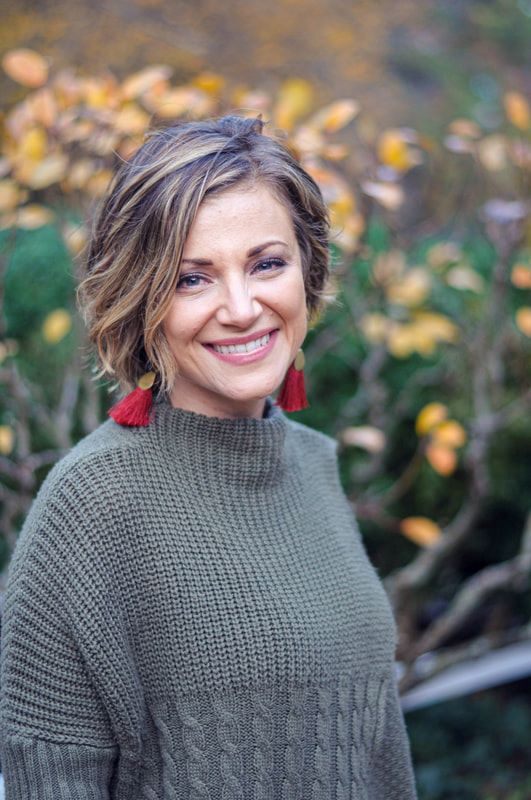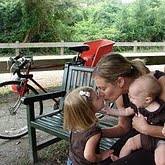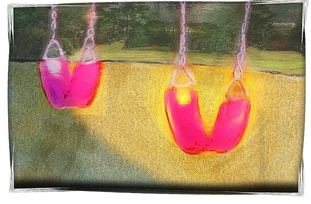
I wish I could tell you I liked her immediately.
“You’ll have to talk to my husband,” I sniped, “we have ten years of projects in this house, and I’m not sure where that falls on the list.”
We got to know her and her likable husband. When, on top of the sleep deprivation, I fell ill with a high fever, she insisted I bring the kids over. I shuffled next door on an 80-degree day in my pajama pants and a hoodie. She kept my girls all day and fed them dinner. “It’s organic,” she assured me, and told me to rest.
The girls asked often to play on the swing set they had installed for their grandson. They invited us to a dinner party. We traded food and stories. We embraced being neighbors.
“We need a neighbor gate,” Mirabella said one day, as she walked down the street to their house, “so we can go right over to play.” We all agreed.
While the kids played, we would talk. She wasn’t easy to get to know. She was salt of the earth and generous of spirit, but she was hard to read, unlike her effusive husband. I wondered if that was how people perceived me.
One day, as I unloaded groceries, she met me at the garage door and asked us to watch her house while she was away for the weekend. She didn’t look well. She spoke quickly, flatly. “Is everything okay?” I asked.
“I have cancer. And…it doesn’t look good.” Tears rolled off her stoic face and splashed onto my driveway. I rushed to hug her, awkwardly. She brushed the tears off, thanked me for watching the house, and was gone.
Right before Halloween, she told our girls “I will be dressed as a vampire, wandering out in the yard. Don’t be scared, it’s just me.” But on Halloween, she found herself in the hospital. Just for the weekend, they said, until the platelets stabilized. On her second favorite holiday, her house stood dark. The next morning, our little monarch butterfly and green fairy showed up in her hospital room. “For your favorite holiday!” Emerie said.
She smiled and corrected her; “My favorite holiday is Easter. But I like Halloween too.”

We bought a Christmas tree and lights for her hospital room. We packed food for her, or sometimes just for him, a couple times per week. He ate dinner at our noisy table, drank a beer with Daniel and talked about football, just to talk about something different. Finally, in February, she came home.
In the spring, we tackled the fence. Our dog sprinted from end to end of the combined yard. “It’s the best of both worlds!” she had said, “I don’t care if you never put the new fence up.”
Our kids relished their unfettered access to their surrogate grandparents and the swings. Working side-by-side in the yard brought ease to conversations that might otherwise have been difficult. She waited for a bone marrow match. Her Hail Mary, she’d said grimly.
“You and the girls can plant my garden. Since I don’t know if I’ll…be here,” she said, as she planted bulbs she might never see bloom. Hesitantly, I considered it. I am often careless and short on time. I’m not sure yet whether it’s just the stage of life I’m in or it’s a character flaw. Or both.
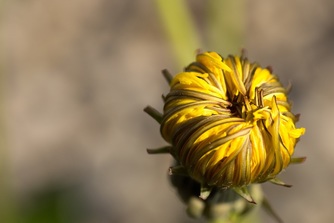
Slowly, the fence went up, but too quickly for her. She asked Daniel to add a bunny hole to the corner. “He lives in your yard,” she said, “but he visits mine. I don’t want him to get stuck.” I don’t know what Daniel would have done if I’d asked him the same thing, but he cut a hole in that fence without thinking.
He got to work on the neighbor gate, and she traced out a path to it in the dirt on her side. “We’ll need some stepping stones,” she had said, “for the girls.” With her help, they built a fairy garden by the gate.
Spring melted into summer, and our garden thrived. We harvested more tomatoes and basil than we could use. She was thrilled. “I’ve never seen anything like it,” she said, to my relief.
I've heard that St. Francis of Assisi was hoeing his garden when asked what he would do if he knew he would die by sunset that day. He reportedly said, "I would finish hoeing my garden." She was this way. Throughout the summer, knowing it may be her last, she weeded and watered, tended and tilled. It was what she wanted. They found a match and moved toward the transplant date, but it wasn’t that simple. I wish I could tell you this story ended the way we planned, the way it was supposed to.
Last week when I opened the front door, he stood on my porch, a food container in his outstretched hand. For the first time in this terrible year, he said, “I don’t think she’s going to make it.” I rushed to hug him as he cried. “It’s okay,” he said. I assured him it was not.
He rushed away making hand gestures that he couldn’t speak. “I’m so sorry.” I said.
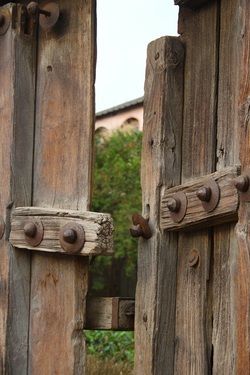
Daniel told me while I blended soup for dinner in the kitchen. I cried a little. I swore a little. I hugged him and kept blending the soup.
After dinner, I announced abruptly that I needed to harvest tomatoes. We had endured a huge storm over the weekend, and I hadn’t yet seen the toll it had taken on the garden. Inappropriately dressed in sparkly flats, I walked through the neighbor gate.
Scores of fallen tomatoes greeted me, along with two plants that had finally lurched free of their cages. They were mostly dead, the season nearly over.I rushed back through the gate for shears, trying to beat the fading light. He would be returning home, alone. I couldn’t let him return to death in the garden.
Maniacally, I tried to free the tomato plant from the structure that supported it, but it was enmeshed.
I wish I could tell you I beat the coming dark, that I removed the dead plants before night fall, before he could see evidence of my ineptitude in her garden, evidence of decay. But I could not.

I obeyed the sign she had hung on her beautiful garden and closed the gate, rested my forearms against it, and cried. I cried for the beauty of forty years of marriage feeling too short. I cried for the sadness of her grandchildren growing up without her. I cried for the hole that is left in our neighborhood, in our family. I cried for my children’s first loss, for how the hell we would tell them. I sobbed and gasped and rubbed tears and mascara away with my dirty hands. I lugged the bag through the neighbor gate, my feeble attempt at protecting him from something I couldn’t, from something that didn’t matter anyway.
There’s so much we learned from all this, so much good tangled with the bad and the hard. Maybe one day I’ll tell you about telling the girls. About how devastating and beautiful and sacred it was. Maybe one day I’ll explain what their friendship has meant to us.
But today, I want to encourage you to know your neighbors. To love them. Not to insulate yourself when you don’t know what to say. I wish I could tell you it will be neat and clean and no one will get dirty or hurt. I can’t. But I can promise you there is beauty in tangled branches.
 RSS Feed
RSS Feed
